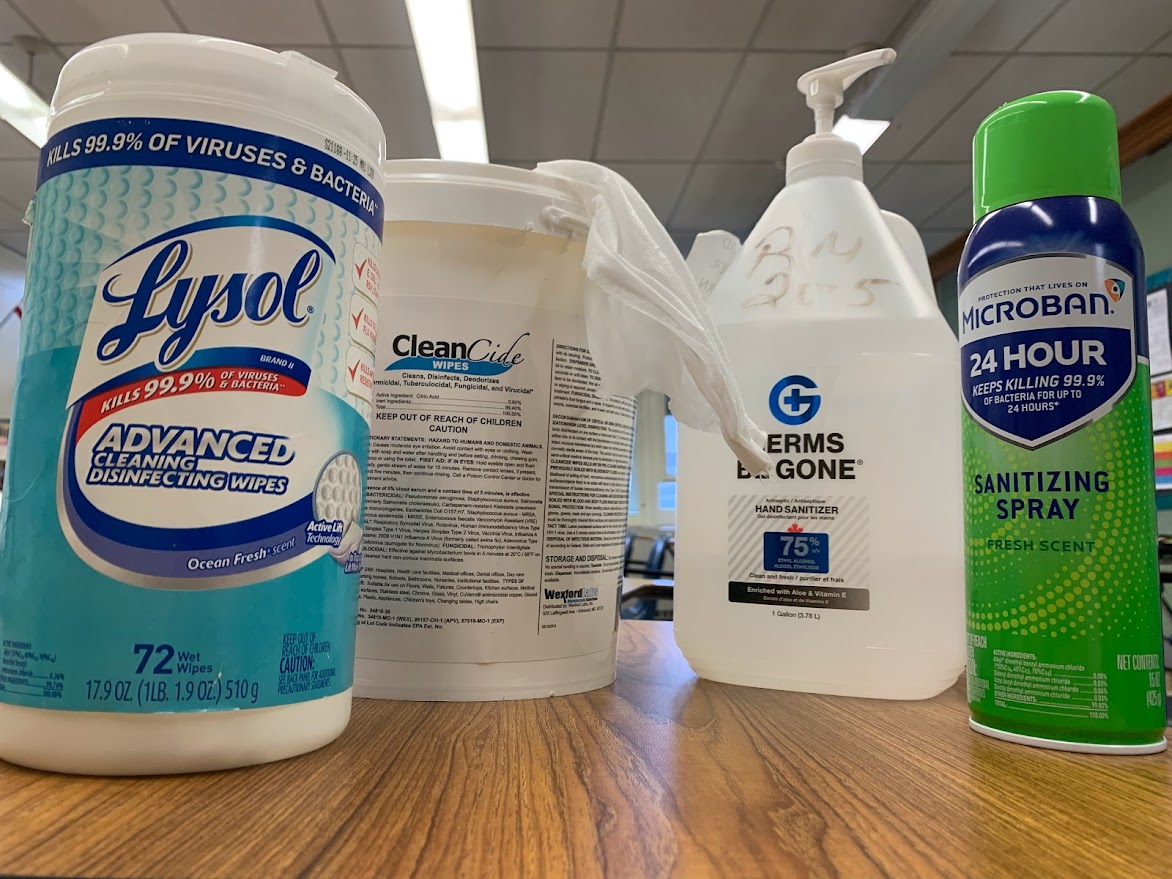Maintaining proper hygiene is crucial in day-to-day life, not only for personal well-being but also for public health. To delve deeper into hygiene habits, the Declaration polled 100 people to shed light on the various approaches people take toward hygiene.
Key findings
Out of these 100 people, there were 75 females, 22 males, and 3 who preferred not to say. The ages ranged from 13-50+. Some nurses agree that elderly people are considered the “dirtiest” age group due to their inability to clean themselves. Most nurses also mentioned that females appear to be cleaner than their counterparts, males.
A majority of 91% of people always wear deodorant with 9% split between only wearing deodorant when they go out or when they remember. An anonymous source commented, “Please wear deodorant! Some people really need it. I think that if you stink, it highly impacts who does and doesn’t want to be around you”. 86% of people wear fragrances and within that 86, 59% of people sometimes wear fragrances to cover up their body odor.
The majority of people (88%) preferred showers over baths with many feeling that baths are unsanitary. However, 87% of people enjoy taking showers and the length of those showers varies according to the people and their circumstances. More than half of the participants (55%) wash their face both morning and night while 12% either don’t wash their face at all or only wash it when they feel like it.
Overwhelmingly, 97% of respondents reported washing their hands regularly citing reasons such as after using the bathroom, before meals, and after their hands get dirty/contaminated.
Tammy Desir, a critical care nurse at Clara Maass, advises everyone to wash their hands whenever they can. She addresses, “There is nothing that can replace soap and water. But, in areas and instances where soap and water are unavailable then hand sanitizer is a good replacement to kill bacteria.”
Impact of COVID on hygiene
COVID-19 brought hygiene practices to the forefront of our minds, altering our cleanliness. Nurse Beebe, a nurse for 46 years who has worked in hospital operating rooms and currently works as a Colonia High School nurse, acknowledges this. She states, “Now we have wipes and hand sanitizers in every room. I have the students wipe the phones down after they use my telephone. Since COVID, I now have paper on my beds, so after a student gets up, it’s easy to change to the paper and pillowcases instead of me wiping it.”
When asked whether we should revert back to doing any hygiene practices we had after COVID such as sanitizing the desks or wearing masks, Beebe replies, “Since COVID, I think people have a better thought process of germs…But I think the world wants to move on. COVID came and slowed us down education-wise and lifestyle-wise, so I don’t think we should revert back. We need to move on, but learn from our mistakes also.”
Desir stated, “Since COVID, our technology such as cell phones, iPads, and computers should be clean and sanitized daily. Especially in this day and age, our hands carry so much bacteria and we put our phones on different surfaces. So there may be bacteria and viruses sitting on our devices.” Surprisingly, 48% of people randomly clean their phones (or when they remember) and 14% of people never clean their phones.
Beebe expresses the same sentiments as Desir saying, “Hand sanitizer shouldn’t be used on phones. They make cleaners for phones and I try to clean my phone at least once a day with a baby wipe.” She continues to say, “I think it’s disgusting when the kids bring their phones to the bathroom or put it on the floor. But overall, I think that phones are not the cleanest.”
Hygiene in personal relationships
Maintaining our cleanliness and grooming habits can directly impact how we perceive ourselves and how others perceive us. In romantic relationships, hygiene contributes to physical attraction. 95% of participants in the survey reported that hygiene is important to them when considering a relationship. 79% believe that bad hygiene is a valid reason to end a relationship. An anonymous source comments, “It’s so simple but so important. People need to stop treating it like it isn’t the bare minimum.”
Practicing good hygiene also has a powerful impact on people’s self-esteem and how they view themselves. Desir says, “Once you take care of yourself, it has a mental impact and it shows. You feel better, smell better, look better, and your mental state tends to be better”. This is shown through the 93% of people who revealed that their self-esteem increases when they practice good hygiene.


















